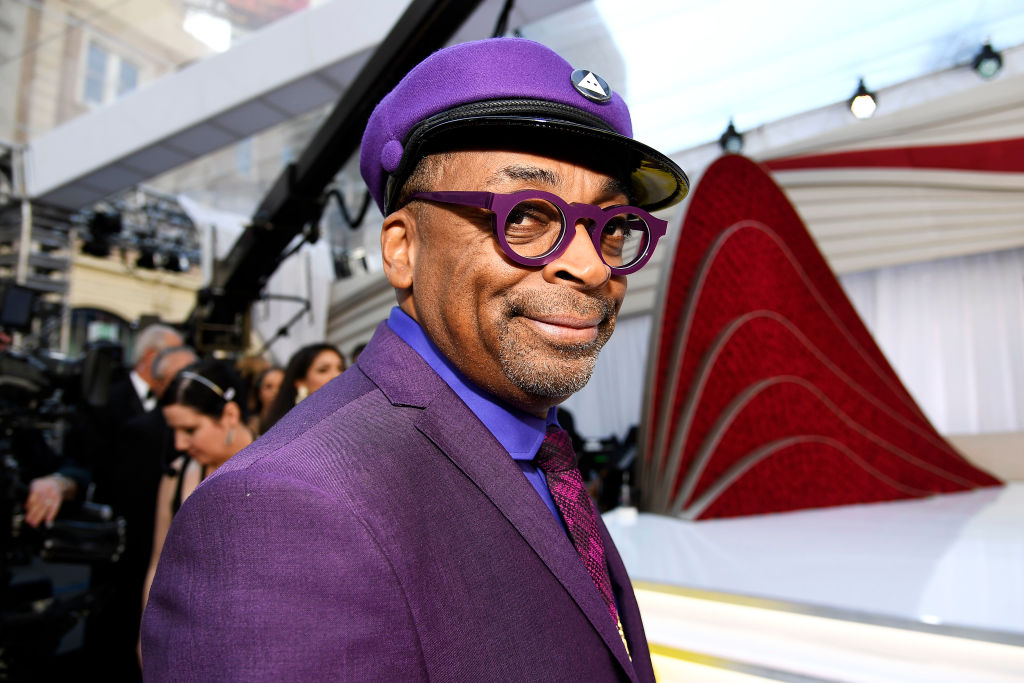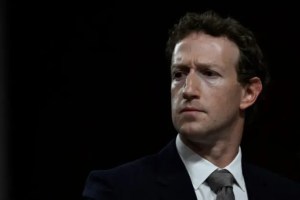I wish people would stop comparing Donald Trump to Adolf Hitler. Not because I’m worried about Trump’s feelings — he’s big enough to look after himself — but because of the extraordinary damage these comparisons are doing to historical memory. All the loose, opportunistic, cheap-thrill talk about Trump being the new Hitler is trivializing the Nazi regime and the grotesque crimes of the 1930s.
The latest celeb to jump on the Trump-Hitler bandwagon is film director Spike Lee. During an acceptance speech for a special prize from the New York Film Critics Circle, Lee said Trump would ‘go down in history with the likes of Hitler’. Trump and all ‘his boys’ will go down ‘on the wrong side of history’, Lee said, no doubt to enthusiastic head-nodding from the Hollywood set.
Lee isn’t alone, of course, in comparing Trump to the most evil man who has ever lived. From the moment Trump entered the White House four years ago, his critics were plundering the horrors of the 1930s for metaphors that they might wield against the nasty new president. I remember at an anti-Trump march in London in 2017 seeing placards featuring Trump with a Hitler mustache. ‘We’re history teachers — we know how this ends’, said one banner.
Recently Arnold Schwarzenegger spoke about the storming of the Capitol on January 6 in the same breath as Kristallnacht, the Nazis’ anti-Semitic pogrom of 1938. This was ‘the Day of Broken Glass right here in the United States’, he said.
Everyone I know agrees that the mob assault on the Capitol was reckless, dangerous and deeply undemocratic. But Kristallnacht? That state-authorized racist pogrom that led to widespread destruction of Jewish businesses and synagogues, to 90 Jewish deaths and to the internment of 30,000 Jews in concentration camps?
There is no comparison. None whatsoever. Kristallnacht was the starting point of the gravest crime in human history; the storming of the Capitol was the pathetic if violent last hurrah of the more extremist element of the pro-Trump lobby.
Schwarzenegger’s ill-advised marshaling of the memory of Kristallnacht in his criticisms of Trump confirmed that to some the crimes of the 1930s, the Holocaust itself, have become little more than symbols; tools we can use against political figures and political ideas we disapprove of.
CNN’s Christine Amanpour last year compared Trump’s style of governance with Kristallnacht, suggesting that both the Trump administration and the Nazi regime were motivated by a desire to ‘attack fact, knowledge, history and proof’. (She later apologized).
A writer for the Washington Post claims that Trump’s refusal to accept the outcome of the presidential election ‘mirrors the lie that fueled the Nazi rise’.
President Biden has spoken about Trump and his more outspoken supporters in the same breath as Goebbels. The Financial Times has claimed that Trump is working from the ‘1930s playbook’. Nick Cohen of this parish chastises those of us who caution against promiscuous use of words like fascist and Nazi against Trump, pointing out that ‘the moral of Aesop’s fable was that the boy who cried wolf was right in the end’.
And on it goes. Nazi this, Nazi that. Echoes of the 1930s. The shadow of the 1930s. The return of the 1930s. The storming of the Capitol was like the Beer Hall Putsch, the Reichstag Fire or Kristallnacht. All these comparisons have been made. Take your pick.
You don’t have to be a defender of Donald Trump to twig the dangers in this increasingly casual plundering of the crimes of the past to express political anger in the present. It is minimizing the Holocaust.
Putting something as grave as Kristallnacht on the same level as an opportunistic protest at the Capitol demeans the memory of Kristallnacht. Speaking about the brutal, violent rise of the Nazis in the same breath as the democratic election of Donald Trump diminishes the rise of the Nazis.
Comparing a president who was the first since Jimmy Carter not to launch any new wars and who had to live with constant daily ridicule from the media with a leader who visited war upon the whole of Europe, plotted the extermination of an entire people and imprisoned or executed his critics doesn’t only exaggerate the threat that Trump posed — by extension it downplays the horrors that Hitler committed. He was like that oafish bloke who was president of America for four years? Oh, he can’t have been that bad.
Imagine this scenario: kids in school over the next few years being taught about Kristallnacht or Hitler’s plans to vaporize every Jew on earth. Those children will think to themselves, ‘Oh yes, I know about Kristallnacht. Something similar happened in American in January 2021.’ Or they will think, ‘Hitler? I’ve heard of him. He was like Donald Trump.’
Their capacity to understand the unique barbarism of the Nazi regime will have been diminished by their constant exposure to Trump-as-Hitler comparisons. This is how historical memory is degraded. Not only by the racist lowlifes who engage in explicit Holocaust denial, but also by the well-meaning if wrong-headed commentariat and political set who engage in Holocaust relativism, who witlessly render mundane the crimes of the 1930s by putting them alongside the stupidities of the 2020s.
This has to stop. The Holocaust is not a political plaything. It is not an exclamation mark that you can put at the end of a sentence or a tweet to show how much you hate Trump. It is a real thing, in history, unparalleled in its inhumanity, and we have a responsibility to teach it honestly to the next generation, not to falsely make them believe that today, for all its faults, is like the 1930s.
That’s the dark irony of the current assaults on Trump. His critics accuse him, with justification, of twisting facts and inventing his own ‘truth’, and yet their transformation of the Holocaust into a tool of virtue-signaling is a far more grave offense against historical truth. Let the Holocaust be. Stop pillaging the suffering of earlier generations. Create your own metaphors.
This article was originally published on The Spectator’s UK website.


















